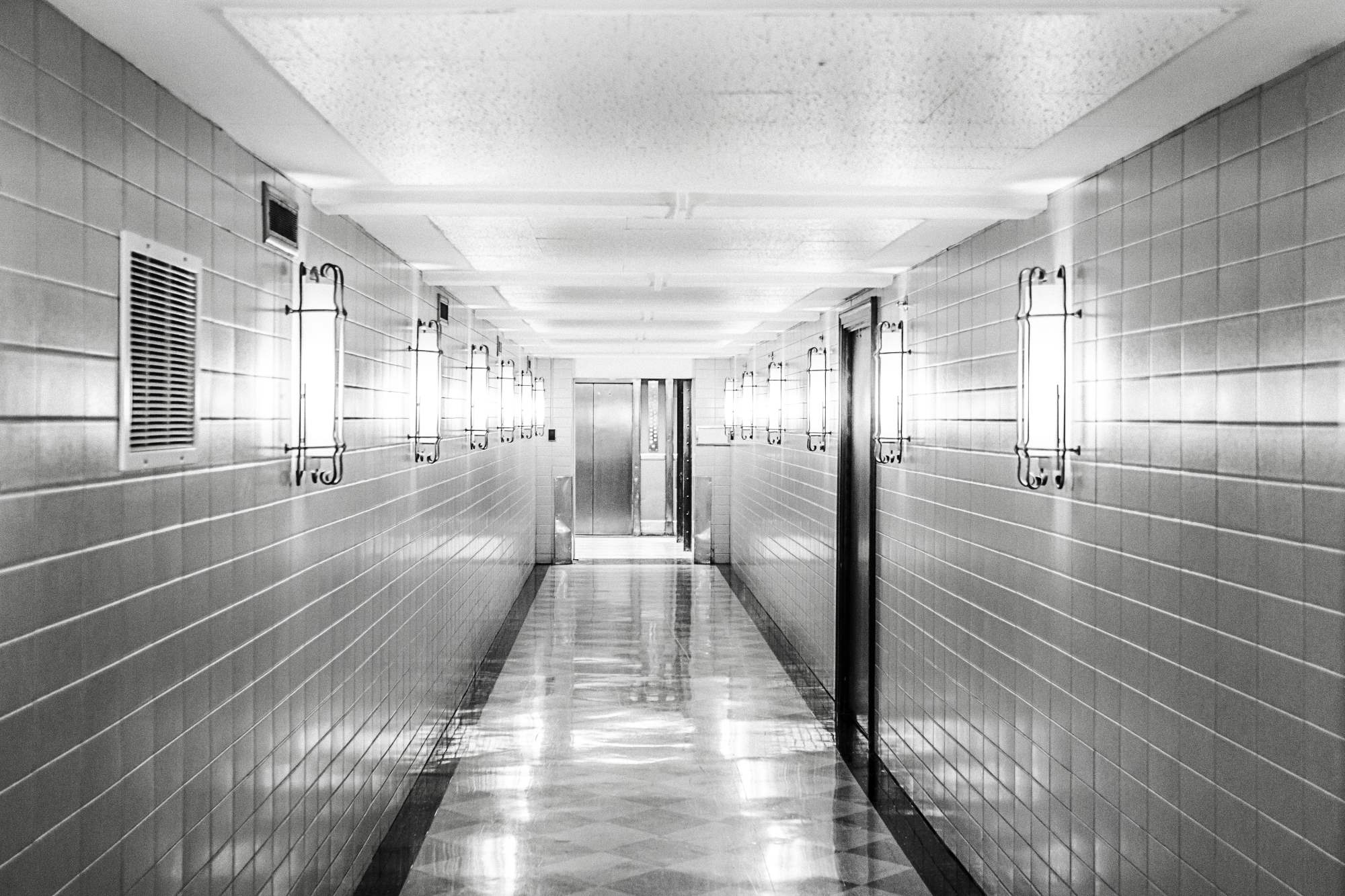Hospitals tended to be strange places. One could find the most varied examples of humanity, from the elder dying of natural causes, to the kid who had just been run over by a bus. Andrew’s grandmother was just old and slowly walking her final path toward eternal peace. Nothing special, nothing loud. Just life and nature, running their proper course. Making room for new life, freeing molecules and atoms for new beings, not necessarily human, not necessarily animal.
Andrew had these inappropriate thoughts in his mind as he entered the room. He opened the door cautiously. His grandmother was sleeping. He fought disappointment away, but he was unsure on what to do. Waking her would be rude. Going away would mean wasting his time. Part of him just wanted to run. In hospitals, every option became inappropriate, as if nothing one did ever felt right.
He looked around the room. He could sit on the chair and wait for his grandma to wake up, but what if she wouldn’t? Visit time was strict and he had to leave in half an hour. He looked at her. An odd expression was on her face, one of peace mixed with boredom. She was not sleeping soundly, Andrew thought. It was afternoon. She had probably fallen asleep because she had no other things to do, no one to talk with. Elders tended to do that. Was she dreaming? Of her youth perhaps.
Andrew left the room, heading for the cafeteria. Walking by other rooms, he glanced inside, imagining stories about their occupants. Feelings and lives mixed with plastic tubes and steel needles. Soft and hard. Room after room, most patients were elders, he noted. They all ended up dying in a cold hospital room, surrounded by nameless strangers. Peacefully, if they were lucky, or in unbearable pain, if they were not.
His grandmother was among the lucky. She had no particular illness; she was just aging to death. Was she lucky? Was it a good thing, dying slowly in a hospital bed? That was the question. Andrew didn’t have an answer. It was not his life on the brink of the end. One could not decide for anyone but themselves. One’s hopes were not necessarily someone else’s. It was the same for her. Andrew hoped she would die peacefully, but that meant she would have to live an existence on a slight slope, ever skidding toward the bottom but never reaching it. She should be allowed to decide for herself.
At the bar, Andrew ordered a coffee and sipped at it standing in a corner. Doctors and nurses crowded the cafeteria, but there also were visitors, like him. The two sides of death, he thought. People trying to prevent it, and people sorely waiting it. People reacted in different ways when they confronted death. Not theirs, but that of others. Many cried, some didn’t. Others preferred mourning in private. Some became icebergs, like Andrew. They built a façade, one of ice and coldness that showed little of what was behind. They were not cold—far from it—but they were scared. So scared, in fact, that they had to protect themselves from the blow. They braced, they crouched not to fall to the ground, dragged down by their own feelings. But that was not the case, he thought. Not yet. His grandmother was getting better and she would soon return home. So that everyone could get back to soothing daily routines.
Andrew knew it, but he felt guilty nonetheless. No one cried because their grandmother had died, but because they would not see her ever again. Religion gave very little comfort. The illusion that loved ones were waiting in the heavens was puerile and useless. The doctors and nurses in the cafeteria knew it very well. They watched those very mechanisms in action every day. Patients came in, only some got out. He admired them for their tenacity, but wondered whether their apparently thick skin would protect them when they would face death. A relative, a son perhaps. No. No one could prepare for something out of their control. Like feelings.
He left the cafeteria, throwing the paper cup into a trashcan. He found his grandma still sleeping in her room. Glancing at his watch, he noted he still had twenty minutes’ worth of visit time, so he sat on the chair near the bed. He looked at his grandmother, at the furrows on her face and hands. He went to shake her awake, but something stopped him midway.
Egoism. The desire to avoid an unpleasant, trite conversation. He knew the script too well. She would ask him how he was doing, how was work. He would give her fake answers, not wanting to load her with even more dark thoughts, because she had enough already on her own. She would complain about her health—and righteously so—but Andrew did not want to listen, not once more. Nodding, faking soothing words while thinking about running away. How was that any better than simply ignoring her?
Then, Andrew remembered why he was there. The real, hidden reason of his visit to his dad’s mom. He didn’t know it when he crossed the threshold of the room, his mind had buried it deep, but he understood the motive as he sat there, watching her. He had a specific task, but he had seen it only when he removed the thick curtain of egoism that he had built around him, a glimmer of unselfishness slipping through it.
His grandmother deserved not to feel alone. She deserved to feel loved and important and missed, however harrowing that was to him.
He skidded the chair closer to the bed, trying not to make too much noise. Her head was slightly bent toward the other side of the bed, facing the window.
Andrew gently shook her shoulder, whispering her name.
She did not move.
This story also appeared on Medium.

